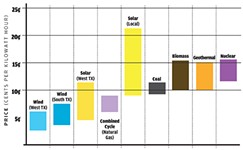Point Austin: Solid State
Leffingwell takes pride in his hometown ... and looks toward one final vote
By Michael King, Fri., Feb. 28, 2014

"In its 174-year history, the state of our city has never, ever been stronger – and it's still getting stronger every single day."
– Mayor Lee Leffingwell, "State of the City" address, Feb. 25
Outside of a Great Depression, that sort of declaration is virtually boilerplate in any "State of" speech. But it's arguable that Austin under Lee Leffingwell can truthfully boast – as he also did – that "we are living today in what is the golden era of our city's long history." Much of that optimism was predictably based on Austin's relatively booming economy. Boosterism comes naturally to Austinites – most of us do enjoy living here, and by conventional standards, we've got plenty to enjoy.
But Leffingwell's largely "positive and upbeat" perspective was also more persuasive because he didn't ignore the real challenges still facing the city. He pointedly noted, "We still have more than 20,000 unemployed in our region, and more than 170,000 folks living under the poverty line. So while it seems like we are on top, our work is not finished." The national debate over growing inequality has not passed us by, and the demographic changes of the last decade have indeed brought to Austin more highly paid professionals, while folks lower on the income scale – less unemployment notwithstanding – have not seen equivalent benefits.
That was one reason Leffingwell briefly but stoutly defended the city's economic incentives policy of his six-year tenure, arguing that it has not been overused (about two agreements per year), and that making the policy too restrictive would "render the benefits moot." Asked later to elaborate, he said that, for example, requiring higher wage scales as a condition of application could discourage companies – especially manufacturers most likely to hire unskilled workers – from applying altogether, not even enabling the city to negotiate on those terms. "We'll never even know we've missed the chance," he said.
One Final Challenge
But on the list of Austin's challenges, the bulk of the mayor's address concerned what he bluntly described as the region's traffic "crisis." He called congestion "a deadly serious threat to almost all of the things we have achieved and continue to strive toward," described its damage to public safety and the environment, and added that it "also undermines our efforts to keep Austin affordable."
As his primary response to that crisis, Leffingwell declared this the year of "Rail or Fail." He effectively kicked off the campaign for November's yet to be precisely defined urban rail bond vote, while acknowledging that Austin is way behind other cities in this project because of the unsuccessful Capital Metro light rail vote in 2000. He reiterated in several different ways: "It's crystal clear to me that the price of failing at the ballot box this time would be enormous."
Although the Real Estate Council of Austin crowd was in an audibly enthusiastic mood for the city's soon-to-retire mayor, Leffingwell seemed aware there might be plenty of skeptics as well. He altered his prepared text to say "the only real solution is to change our approach" (the draft read, "to change behavior"), emphasizing that a "multimodal" transportation system must be more efficient and sustainable than what we have now. And he made a point of acknowledging and applauding that plenty of bond money has been spent on roads during the last decade, but as preface to the point that "building more roads to solve your traffic problem is like buying a longer belt to solve your weight problem."
A Golden Mean
Nevertheless, the devil remains in the multimodal details. We can expect legions of road warriors to reflexively oppose whatever Project Connect plan is finally placed on the ballot, but the curious preamble this time around is that a hard core of mass transit advocates – mostly associated with the small but vociferous Austinites for Urban Rail Action – has begun insisting that unless the routes are drawn as they demand (i.e., including the much-debated "Lamar/Guadalupe Corridor") they will oppose the bond proposition. Indeed, when Leffingwell didn't explicitly "prioritize" in his speech the East Riverside Corridor (as AURA had demanded), they instantly tweeted their denunciations.
Afterward, Leffingwell said he would reach out to AURA and others like them, hoping to define a rail proposal that most transit advocates (and voters) can support. Recalling the 2000 light rail vote, he noted that it included the entire Cap Metro service area, and that, in fact, city of Austin voters approved the proposal. This fall's vote will be limited to the city of Austin – a ballot that will also include the first 10-1 City Council, another wild card. There's no telling where the pendulum will swing.
Leffingwell's parting words were avuncular advice to his undetermined successor: Keep an open mind and a cool head, maintain lines of communication, and – "never let the perfect be the enemy of the good." That too became tweet-fodder for mockery on social media, although it's a principle that might as well quietly stand for Leffingwell's tenure as a council member and mayor. Dogged, implacable, and occasionally querulous, Leffingwell has consistently tried his damnedest to hold the politics of his beloved hometown to his version of the golden mean. He's designated this transit project as his last major effort at a unifying municipal legacy.
"I hope you'll agree," he concluded, "that the correct answer is yes."
Got something to say on the subject? Send a letter to the editor.










